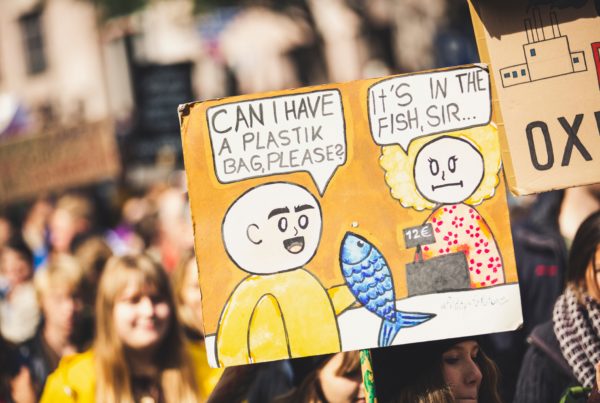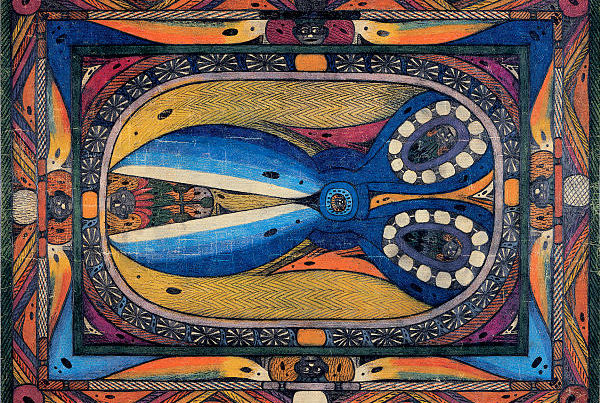
In Mad Men, Don Draper famously says: “What is happiness? It’s a moment before you need more happiness” (Weiner, 2012). This line reflects the idea that happiness is short-lived, and that once we feel it, we immediately begin chasing the next high. While this view may seem cynical, current psychological research suggests it’s partly true.
In Mad Men, Don Draper famously says: “What is happiness? It’s a moment before you need more happiness” (Weiner, 2012). This line reflects the idea that happiness is short-lived, and that once we feel it, we immediately begin chasing the next high. While this view may seem cynical, current psychological research suggests it’s partly true.

Photo by Luca Upper

Photo by Luca Upper
Hedonic adaptation is the psychological phenomenon in which, after experiencing positive events, we quickly adapt and return to our original baseline level of happiness (Diener et al., 2006). This is evident in everyday indulgences: the pleasure of eating your favorite dessert, scrolling through social media (Kross et al., 2013), or binge-watching a new series (Fisher et al., 2018). These activities provide temporary happiness, but their effect fades quickly. Even bigger rewards, such as upgrading your wardrobe (Van Boven & Gilovich, 2003) or buying a new phone (Gilbert et al., 1998), tend to lose their thrill just as quickly. We rapidly adapt to these positive events and soon begin wanting more (Frederick & Loewenstein, 1999).
This cycle of wanting more aligns with hedonism, a philosophy defining happiness as the pursuit of pleasure and avoidance of pain. It suggests that happiness comes from maximizing pleasure, focusing on the positive feelings we experience in the present moment. Today, this mindset is especially visible on social media: people constantly share the most exciting parts of their lives, like parties and luxurious vacations, reinforcing the idea that happiness comes from indulgence.
“Happiness, from [a eudaimonic] perspective, doesn't come from comfort or ease, but from doing something difficult but meaningful.”
Yet hedonistic values are not always linked to lasting happiness (Kashdan et al., 2008). Those who prioritize pleasure may experience brief joy, but it often fades quickly, leading back to hedonic adaptation. In fact, constantly chasing pleasure can undermine long-term well-being, as it neglects deeper psychological needs (Kasser & Ryan, 1996). People who value hedonism may report higher momentary pleasure, but not greater life satisfaction.
In contrast, eudaimonism offers a different philosophy, emphasizing long-term fulfillment over short-term pleasure. It suggests that happiness arises not from constant indulgence, but from cultivating a deeper sense of purpose—like pursuing goals, engaging in activities that feel worthwhile, or contributing to something bigger than ourselves. While a hedonist might go partying the night before an exam, a eudaimonic person might choose to spend that time studying, despite being tired, because they’re committed to achieving a good grade. They may also stay committed to a long-distance relationship despite the emotional difficulty of being apart, believing the relationship is deeply important and worth the sacrifice. Happiness, from this perspective, doesn’t come from comfort or ease, but from doing something difficult but meaningful.
Indeed, research supports the benefits of eudaimonic living. Ryan and Deci (2001) found that pursuing intrinsic goals, such as personal growth, meaningful relationships, community involvement, and health, leads to greater life satisfaction than chasing extrinsic rewards like money or fame. The study suggests that eudaimonic living offers a more sustainable path to lasting happiness, indicating that our happiness baseline may not be as fixed as hedonic adaptation implies. By pursuing intrinsic goals, we have the potential to shift it permanently, challenging the idea that happiness is just “a moment before you need more happiness.”
“For many, the deepest regrets weren’t about what they did, but what they didn’t do.”
While hedonism and eudaimonism represent two distinct paths to happiness, it may be unrealistic to fully commit to one while ignoring the other. After all, we’re human: we crave a bit of both. Sometimes we seek pleasure; other times, meaning. The key may lie not in choosing between them, but in learning how to balance them. One way to do this is by structuring our lives so that moments of pleasure follow moments of purpose. For instance, watching a favorite TV show after a long day of studying can feel especially rewarding because it follows a sense of accomplishment and purpose. Similarly, after a long year of work, going on vacation isn’t indulgence but a reward for the hard work it took to get there. In turn, pleasure doesn’t feel hollow; it is well-earned. Sometimes, it’s even possible to experience both at once. For example, spending time with close friends and family not only offers the pleasures of joy and laughter, but also a deeper sense of connection and belonging. This balance allows us to enjoy life’s joys while staying committed to meaningful goals.
Beyond pleasure and meaning, there seems to be another important component of happiness: authenticity. Bronnie Ware (2012), a former palliative care nurse, found that the most common regret of the dying was: “I wish I’d had the courage to live a life true to myself, not the life others expected of me.” Many realized too late that they had conformed to external expectations, neglecting their own passions and dreams. One man had always longed for a nomadic life but chose a stable office job, spending decades in a career he never liked. He regretted never taking even a few years to explore the world. One woman admitted marrying someone she didn’t truly love just to please her parents, saying she never experienced a deep, genuine connection. For many, the deepest regrets weren’t about what they did, but what they didn’t do. Their biggest regret was not having lived a life true to themselves.
The secret to happiness is an age-old dilemma, one that has inspired entire philosophies, from hedonism to eudaimonism. Yet the most profound insights often come not from those chasing happiness, but from those looking back on their lives. Many wished they’d had the courage to live true to themselves rather than according to others’ expectations. However, authenticity isn’t always possible, nor is it everyone’s priority; for some, putting others first gives them purpose. Happiness, after all, is relative: what makes one person happy might have the opposite effect on another. It is a deeply complex and personal topic, and while psychology and philosophy can shed some light on it, they cannot provide a final answer. Ultimately, each person must discover what brings them lasting happiness.
References
- Brickman, P., Coates, D., & Janoff-Bulman, R. (1978). Lottery winners and accident victims: Is happiness relative? Journal of Personality and Social Psychology, 36(8), 917–927. https://doi.org/10.1037/0022-3514.36.8.917
- Diener, E., Lucas, R. E., & Oishi, S. (2006). Subjective well-being: The science of happiness and life satisfaction. In S. J. Lopez & C. R. Snyder (Eds.), Handbook of positive psychology (pp. 63–73). Oxford University Press.
- Fisher, R. A., & Martin, D. (2018). The impact of binge-watching on social and psychological well-being. Journal of Media Psychology, 30(2), 56-62. https://doi.org/10.1027/1864-1105/a000229
- Frederick, S., & Loewenstein, G. (1999). Hedonic adaptation. In D. Kahneman, E. Diener, & N. Schwartz (Eds.), Well-being: The foundations of hedonic psychology (pp. 302–329). Russell Sage Foundation.
- Gilbert, D. T., Pinel, E. C., Wilson, T. D., Blumberg, S. J., & Wheatley, T. P. (1998). Immune neglect: A source of durability bias in affective forecasting. Journal of Personality and Social Psychology, 75(3), 617–638. https://doi.org/10.1037/0022-3514.75.3.617
- Higgins, E. T. (1987). Self-discrepancy: A theory relating self and affect. Psychological Review, 94(3), 319–340. https://doi.org/10.1037/0033-295X.94.3.319
- Kashdan, T. B., Biswas-Diener, R., & King, L. A. (2008). Reconsidering happiness: The costs of distinguishing between hedonics and eudaimonia. The Journal of Positive Psychology, 3(4), 219–233. https://doi.org/10.1080/17439760802303044
- Kasser, T., & Ryan, R. M. (1996). Further examining the American dream: Differential correlates of intrinsic and extrinsic goals. Personality and Social Psychology Bulletin, 22(3), 280–287. https://doi.org/10.1177/0146167296223006
- Kross, E., Verduyn, P., Demiralp, E., Park, J., Lee, D. S., & Ybarra, O. (2013). Facebook use predicts declines in subjective well-being in young adults. PLOS ONE, 8(8), e69841. https://doi.org/10.1371/journal.pone.0069841
- Ryan, R. M., & Deci, E. L. (2001). On happiness and human potentials: A review of research on hedonic and eudaimonic well-being. Annual Review of Psychology, 52, 141–166. https://doi.org/10.1146/annurev.psych.52.1.141
- Sagiv, L., & Schwartz, S. H. (2000). Value priorities and subjective well-being: Direct relations and congruity effects. European Journal of Social Psychology, 30(2), 177–198. https://doi.org/10.1002/(SICI)1099-0992(200003/04)30:2<177::AID-EJSP984>3.0.CO;2-V
- Van Boven, L., & Gilovich, T. (2003). To do or to have? That is the question. Journal of Personality and Social Psychology, 85(6), 1193–1202. https://doi.org/10.1037/0022-3514.85.6.1193
- Ware, B. (2012). The top five regrets of the dying: A life transformed by the dearly departing. Hay House.
- Weiner, M. (Writer). (2012). Commissions and fees (Season 5, Episode 12) [TV series episode]. In M. Weiner (Executive Producer), Mad Men. AMC. Retrieved from https://www.amc.com/shows/mad-men
Hedonic adaptation is the psychological phenomenon in which, after experiencing positive events, we quickly adapt and return to our original baseline level of happiness (Diener et al., 2006). This is evident in everyday indulgences: the pleasure of eating your favorite dessert, scrolling through social media (Kross et al., 2013), or binge-watching a new series (Fisher et al., 2018). These activities provide temporary happiness, but their effect fades quickly. Even bigger rewards, such as upgrading your wardrobe (Van Boven & Gilovich, 2003) or buying a new phone (Gilbert et al., 1998), tend to lose their thrill just as quickly. We rapidly adapt to these positive events and soon begin wanting more (Frederick & Loewenstein, 1999).
This cycle of wanting more aligns with hedonism, a philosophy defining happiness as the pursuit of pleasure and avoidance of pain. It suggests that happiness comes from maximizing pleasure, focusing on the positive feelings we experience in the present moment. Today, this mindset is especially visible on social media: people constantly share the most exciting parts of their lives, like parties and luxurious vacations, reinforcing the idea that happiness comes from indulgence.
“Happiness, from [a eudaimonic] perspective, doesn't come from comfort or ease, but from doing something difficult but meaningful.”
Yet hedonistic values are not always linked to lasting happiness (Kashdan et al., 2008). Those who prioritize pleasure may experience brief joy, but it often fades quickly, leading back to hedonic adaptation. In fact, constantly chasing pleasure can undermine long-term well-being, as it neglects deeper psychological needs (Kasser & Ryan, 1996). People who value hedonism may report higher momentary pleasure, but not greater life satisfaction.
In contrast, eudaimonism offers a different philosophy, emphasizing long-term fulfillment over short-term pleasure. It suggests that happiness arises not from constant indulgence, but from cultivating a deeper sense of purpose—like pursuing goals, engaging in activities that feel worthwhile, or contributing to something bigger than ourselves. While a hedonist might go partying the night before an exam, a eudaimonic person might choose to spend that time studying, despite being tired, because they’re committed to achieving a good grade. They may also stay committed to a long-distance relationship despite the emotional difficulty of being apart, believing the relationship is deeply important and worth the sacrifice. Happiness, from this perspective, doesn’t come from comfort or ease, but from doing something difficult but meaningful.
Indeed, research supports the benefits of eudaimonic living. Ryan and Deci (2001) found that pursuing intrinsic goals, such as personal growth, meaningful relationships, community involvement, and health, leads to greater life satisfaction than chasing extrinsic rewards like money or fame. The study suggests that eudaimonic living offers a more sustainable path to lasting happiness, indicating that our happiness baseline may not be as fixed as hedonic adaptation implies. By pursuing intrinsic goals, we have the potential to shift it permanently, challenging the idea that happiness is just “a moment before you need more happiness.”
“For many, the deepest regrets weren’t about what they did, but what they didn’t do.”
While hedonism and eudaimonism represent two distinct paths to happiness, it may be unrealistic to fully commit to one while ignoring the other. After all, we’re human: we crave a bit of both. Sometimes we seek pleasure; other times, meaning. The key may lie not in choosing between them, but in learning how to balance them. One way to do this is by structuring our lives so that moments of pleasure follow moments of purpose. For instance, watching a favorite TV show after a long day of studying can feel especially rewarding because it follows a sense of accomplishment and purpose. Similarly, after a long year of work, going on vacation isn’t indulgence but a reward for the hard work it took to get there. In turn, pleasure doesn’t feel hollow; it is well-earned. Sometimes, it’s even possible to experience both at once. For example, spending time with close friends and family not only offers the pleasures of joy and laughter, but also a deeper sense of connection and belonging. This balance allows us to enjoy life’s joys while staying committed to meaningful goals.
Beyond pleasure and meaning, there seems to be another important component of happiness: authenticity. Bronnie Ware (2012), a former palliative care nurse, found that the most common regret of the dying was: “I wish I’d had the courage to live a life true to myself, not the life others expected of me.” Many realized too late that they had conformed to external expectations, neglecting their own passions and dreams. One man had always longed for a nomadic life but chose a stable office job, spending decades in a career he never liked. He regretted never taking even a few years to explore the world. One woman admitted marrying someone she didn’t truly love just to please her parents, saying she never experienced a deep, genuine connection. For many, the deepest regrets weren’t about what they did, but what they didn’t do. Their biggest regret was not having lived a life true to themselves.
The secret to happiness is an age-old dilemma, one that has inspired entire philosophies, from hedonism to eudaimonism. Yet the most profound insights often come not from those chasing happiness, but from those looking back on their lives. Many wished they’d had the courage to live true to themselves rather than according to others’ expectations. However, authenticity isn’t always possible, nor is it everyone’s priority; for some, putting others first gives them purpose. Happiness, after all, is relative: what makes one person happy might have the opposite effect on another. It is a deeply complex and personal topic, and while psychology and philosophy can shed some light on it, they cannot provide a final answer. Ultimately, each person must discover what brings them lasting happiness.
References
- Brickman, P., Coates, D., & Janoff-Bulman, R. (1978). Lottery winners and accident victims: Is happiness relative? Journal of Personality and Social Psychology, 36(8), 917–927. https://doi.org/10.1037/0022-3514.36.8.917
- Diener, E., Lucas, R. E., & Oishi, S. (2006). Subjective well-being: The science of happiness and life satisfaction. In S. J. Lopez & C. R. Snyder (Eds.), Handbook of positive psychology (pp. 63–73). Oxford University Press.
- Fisher, R. A., & Martin, D. (2018). The impact of binge-watching on social and psychological well-being. Journal of Media Psychology, 30(2), 56-62. https://doi.org/10.1027/1864-1105/a000229
- Frederick, S., & Loewenstein, G. (1999). Hedonic adaptation. In D. Kahneman, E. Diener, & N. Schwartz (Eds.), Well-being: The foundations of hedonic psychology (pp. 302–329). Russell Sage Foundation.
- Gilbert, D. T., Pinel, E. C., Wilson, T. D., Blumberg, S. J., & Wheatley, T. P. (1998). Immune neglect: A source of durability bias in affective forecasting. Journal of Personality and Social Psychology, 75(3), 617–638. https://doi.org/10.1037/0022-3514.75.3.617
- Higgins, E. T. (1987). Self-discrepancy: A theory relating self and affect. Psychological Review, 94(3), 319–340. https://doi.org/10.1037/0033-295X.94.3.319
- Kashdan, T. B., Biswas-Diener, R., & King, L. A. (2008). Reconsidering happiness: The costs of distinguishing between hedonics and eudaimonia. The Journal of Positive Psychology, 3(4), 219–233. https://doi.org/10.1080/17439760802303044
- Kasser, T., & Ryan, R. M. (1996). Further examining the American dream: Differential correlates of intrinsic and extrinsic goals. Personality and Social Psychology Bulletin, 22(3), 280–287. https://doi.org/10.1177/0146167296223006
- Kross, E., Verduyn, P., Demiralp, E., Park, J., Lee, D. S., & Ybarra, O. (2013). Facebook use predicts declines in subjective well-being in young adults. PLOS ONE, 8(8), e69841. https://doi.org/10.1371/journal.pone.0069841
- Ryan, R. M., & Deci, E. L. (2001). On happiness and human potentials: A review of research on hedonic and eudaimonic well-being. Annual Review of Psychology, 52, 141–166. https://doi.org/10.1146/annurev.psych.52.1.141
- Sagiv, L., & Schwartz, S. H. (2000). Value priorities and subjective well-being: Direct relations and congruity effects. European Journal of Social Psychology, 30(2), 177–198. https://doi.org/10.1002/(SICI)1099-0992(200003/04)30:2<177::AID-EJSP984>3.0.CO;2-V
- Van Boven, L., & Gilovich, T. (2003). To do or to have? That is the question. Journal of Personality and Social Psychology, 85(6), 1193–1202. https://doi.org/10.1037/0022-3514.85.6.1193
- Ware, B. (2012). The top five regrets of the dying: A life transformed by the dearly departing. Hay House.
- Weiner, M. (Writer). (2012). Commissions and fees (Season 5, Episode 12) [TV series episode]. In M. Weiner (Executive Producer), Mad Men. AMC. Retrieved from https://www.amc.com/shows/mad-men



